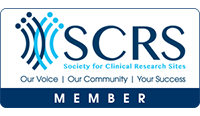Let’s take a dive into what is causing your obstructive sleep apnea. Sleep apnea is a disorder in which one’s breathing is affected by the blockage of the airways which can also cause one to stop breathing during their sleep. Sleep apnea can cause one to snore, have insomnia, hypersomnia along with other symptoms.
There are many factors into why one may have obstructive sleep apnea but to be sure, consult with your physician to narrow down your potential cause(s). Mayo Clinic has provided us with some factors one may want to know, such as obesity, family history, smoking, thick neck circumference, and many other medical conditions.
The Dangers of Uncontrolled Sleep Apnea
According to research, undiagnosed sleep apnea can be directly linked to an increased risk of cardiovascular and metabolic health disease. And an unreported number of individuals who experience sleep apnea may not even know they have this very common problem.
According to an article written by John Hopkins University, “Sleep apnea happens when upper airway muscles relax during sleep and pinch off the airway, which prevents you from getting enough air. Your breathing may pause for 10 seconds or more at a time, until your reflexes kick in and you start breathing again,” explains Jonathan Jun, M.D., a pulmonary and sleep medicine specialist at the Johns Hopkins Sleep Disorders Center.
Who is Affected by Sleep Apnea?
Sleep apnea is more common than you might think. It affects about 3 percent of the population with normal weight, while it affects over 20 percent of those who are considered obese. In general, sleep apnea affects men more than women. However, sleep apnea rates increase sharply in women after menopause. Sleep apnea is often linked to heart disease and metabolic issues like diabetes.
Obstructive Sleep Apnea (OSA) Clinical Study
Do you have obstructive sleep apnea (OSA)? We are currently enrolling for a clinical study for an investigational device for the treatment of OSA.
Eligible participants must meet the following:*
- Age 18 or older
- Have a diagnosis of OSA that is considered to be moderate or severe
- Are unable or unwilling to use CPAP as a form of treatment
- During screening and the rest of the study, you cannot use other therapy such as CPAP or an oral appliance
- Able to speak, read, and write English and have access to a smart phone or tablet
- Cannot have a beard that interferes with the aerSleep II
- Cannot have other sleep disorders or serious illness, history of disease in your neck blood vessels, surgery to the head and neck, stroke or use of home oxygen
For more information, complete our application to learn more here.



